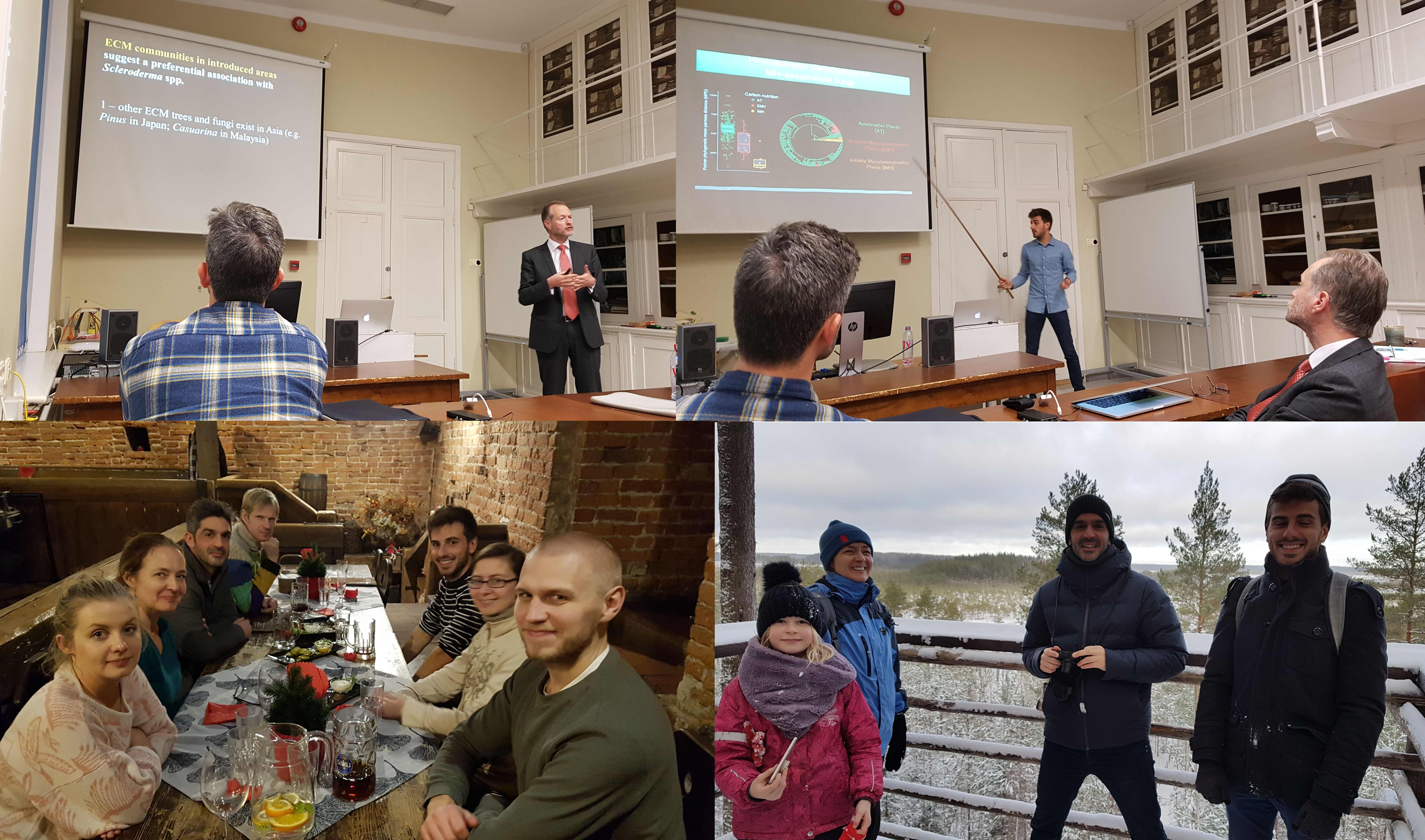Plant Ecology Laboratory
Research in our lab focuses on diversity patterns in biological communities, and on the interactions underlying these patterns. The main questions we address are: how do communities vary along natural gradients and gradients of human impact? What are the major assembly rules shaping communities; and are they attributable to biotic interactions or environmental heterogeneity? What are the roles of different biotic interactions - including competition, facilitation, herbivory and symbiosis - in structuring communities? Read more
News archive - January
COST Action “KEYSOM” – 3rd Training School in Tartu
January 2019
Framed within the objectives of the COST ACTION KEYSOM (Soil fauna - Key to Soil Organic Matter Dynamics and Modelling – see http://keysom.eu/) the third KEYSOM Training School was aimed at linking the role of the soil biodiversity with the soil organic matter dynamics. During three days, a comprehensive overview of the tools available to assess the soil biodiversity (including macrofauna, mesofauna, microfauna and microorganisms), such as classical taxonomic approaches and novel soil DNA metabarcoding was given to almost 50 participants.
The course was organized by Maarja Öpik and Alar Astover (Estonian University of Life Sciences) with the help of many others. A selection of speakers from our working group (Maarja, Inga, Kadri, Lena, Guille), from the University of Life Sciences (Alar Astover, Kaarel Sammet, Mari Ivask and Merrit Shanskyi) and invited guests gave fascinating insights into the interconnected world of soil organic matter and soil organisms. There were also practical lessons into determination of earthworm species, statistics and even soil mites! We are happy that the training school turned out a great success and hope that every participant managed to take home something memorable from the time in cold cold Tartu!
Visit from National Natural History Museum, Paris, France
January 2019
Our team was visited by colleagues from National Natural History Museum (Museum National d’Histoire Naturelle) and Ecole Normale Superieure, Paris, France: Marc-Andre Selosse, Florent Martos and Benoit Perez-Lamarque. Marc-Andre and Benoit provided a double seminar, presenting recent research results on co-dispersal of plants and their mycorrhizal fungal symbionts (Marc-Andre) and on patterns of interactions among plants and their arbuscular mycorrhizal fungal partners at the global scale (Benoit). In addition to vibrant scientific discussions, Estonian food, culture and nature got well sampled. Thank you for visiting!

2022: march, august
2021: february, may, august, september, october
2020: february, august, september, december
2019: january, february, march, april, june, july, september, november
2018: january, february, march, april, may, june, july, october, november, december
2017: january, february, march, april, may, june, july, august, september, october, november, december
2016: january, february, march, april, may, july, august, october, november, december
2015: january, february, march, april, may, july, august, september, october, november
2014: january, february, may, july, august, september, november, december
2013: january, february, april, may, june, august, september, october, november, december
2012: january, february, march, april, may, june, august, september, october, november, december
2011: may, june, september, october, november

